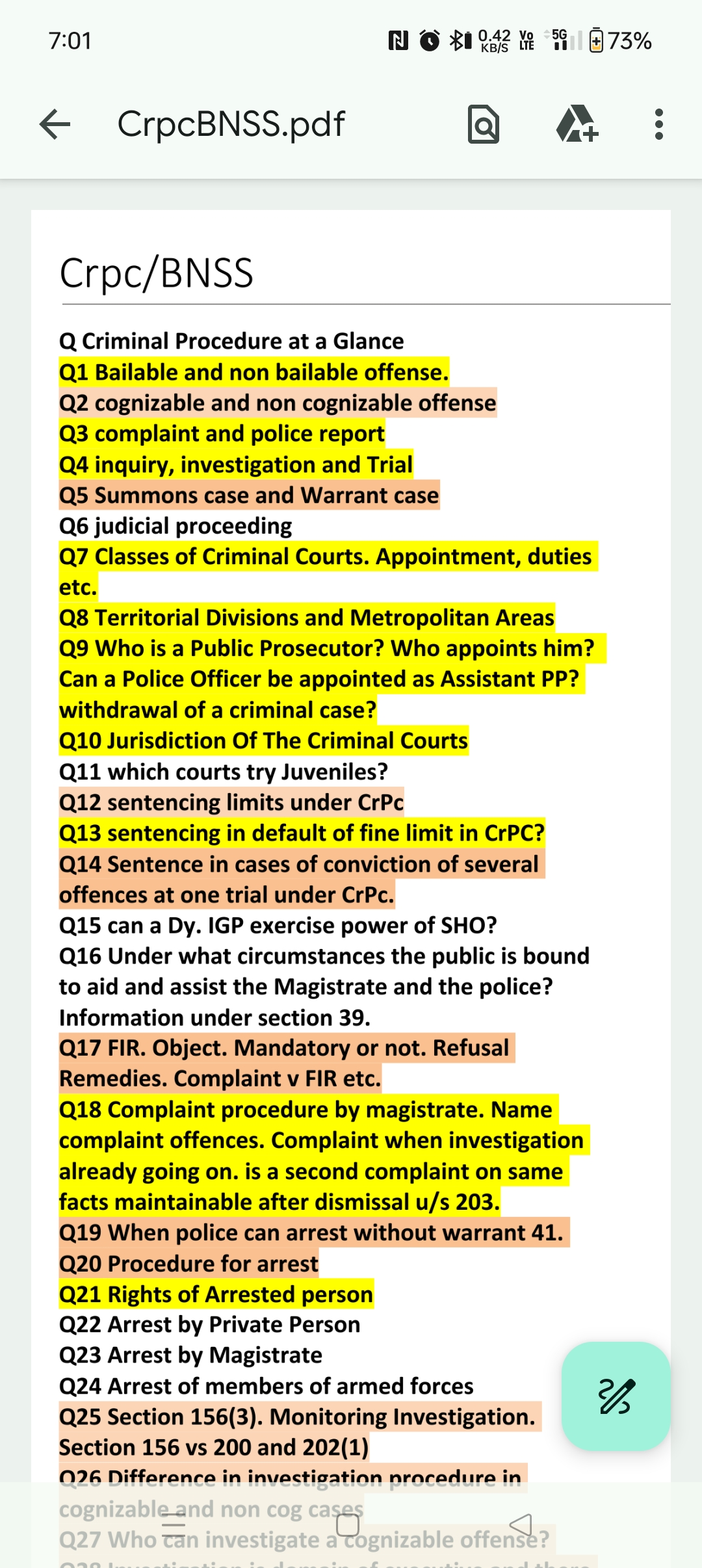Bailable and non-bailable offense.

Understand the Problem
The question is asking for definitions and explanations of legal concepts such as bailable vs. non-bailable offenses, cognizable vs. non-cognizable offenses, and details regarding judicial procedures. This involves summarizing and clarifying legal terminology and processes as outlined in the Criminal Procedure Code (CrPC).
Answer
Bailable offenses allow bail as a right; non-bailable do not.
In bailable offenses, the accused can be released on bail as a matter of right. For non-bailable offenses, bail cannot be claimed as a matter of right and is subject to the discretion of the court.
Answer for screen readers
In bailable offenses, the accused can be released on bail as a matter of right. For non-bailable offenses, bail cannot be claimed as a matter of right and is subject to the discretion of the court.
More Information
Bailable offenses are usually less severe and include minor crimes, whereas non-bailable offenses often involve more serious charges and potential punishments.
Tips
A common mistake is assuming that bail cannot be granted at all in non-bailable offenses. It can be, but it is not automatic and depends on the court's decision.
Sources
- Difference between Bailable and Non-Bailable Offence - geeksforgeeks.org
AI-generated content may contain errors. Please verify critical information